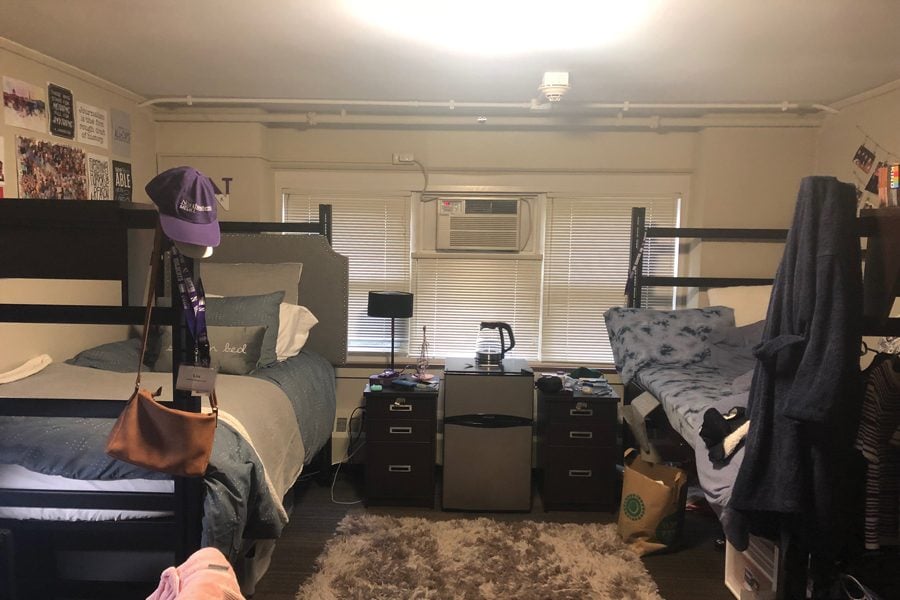Students spend big for back-to-school shopping
Lia Assimakopoulos’s room in Willard Hall. A survey conducted earlier this year by Deloitte estimated families would spend $25.5 billion in back to college shopping.
October 2, 2018
Earlier this month, more than 2,000 students moving into dorms raided the Target in downtown Evanston, leaving empty shelves and other stores to compensate for the picked over stock. Downtown Evanston embraced the influx with displays of Northwestern spirit and signs announcing student discounts.
The city’s business community openly welcomes new consumers every September, many of them incoming students finishing up some last-minute back-to-school shopping. The joyful greeting is not surprising — businesses have a lot to gain in back-to-college shopping.
A survey conducted earlier this year by Deloitte, a Big Four accounting firm, estimated families would spend $25.5 billion nationally in back-to-college shopping, much of that in brick and mortar stores. The average household, the survey found, planned to spend more than $1,300.
Communication first-year Maddy Daum, who moved into Elder Hall this fall, said that figure “sounds about right” for her basic dorm items.
“We spent a little less than we were expecting just because I didn’t need anything too fancy, I just got the necessities,” she said. “I didn’t decorate my dorm excessively or anything like that.”
But that was before other purchases like textbooks and winter clothes for the Los Angeles native. Daum isn’t alone — students are increasingly looking for upscale dorm accomodations, like high thread count sheets.
“I bought a lot of my bedding stuff through Dormify, which is notoriously kind of expensive,” said Medill first-year Lia Assimakopoulos. “That was definitely a little bit more than I anticipated but I think they have pretty good quality stuff so I liked it.”
Daum spent $150 on bedding, more than $50 she originally anticipated.
The list of suggested items by Northwestern residential services is noticeably small, including only “basic necessities” such as shower sandals, toiletries and an alarm clock. The University bans microwaves, large refrigerators and air conditioning units from student rooms.
But students often want more than the bare minimum. Retailers recognize this, some of them offering services aimed at improving convenience.
Assimakopoulos said she visited the Bed, Bath & Beyond near her home, where she scanned items to purchase and pick up at a Chicago location.
“It was really convenient to just come here and buy stuff because shipping is not easy and putting your stuff in suitcases is really difficult and having to stay under the weight limit is a big pain,” she said.
The costs of shipping is one factor pushing students toward physical stores. Online shoppers strongly prefer free shipping, above options to pick up in-store and complete returns in-store, the Deloitte survey found.
“It really helps to have it delivered because bringing everything is a pain,” Daum said. “I have a few friends who brought all of their bedding, all of their accessories and everything in their luggages with them. And that’s just really difficult.”
Gabby Birenbaum contributed reporting.
Email: [email protected]
Twitter: @_perezalan_












